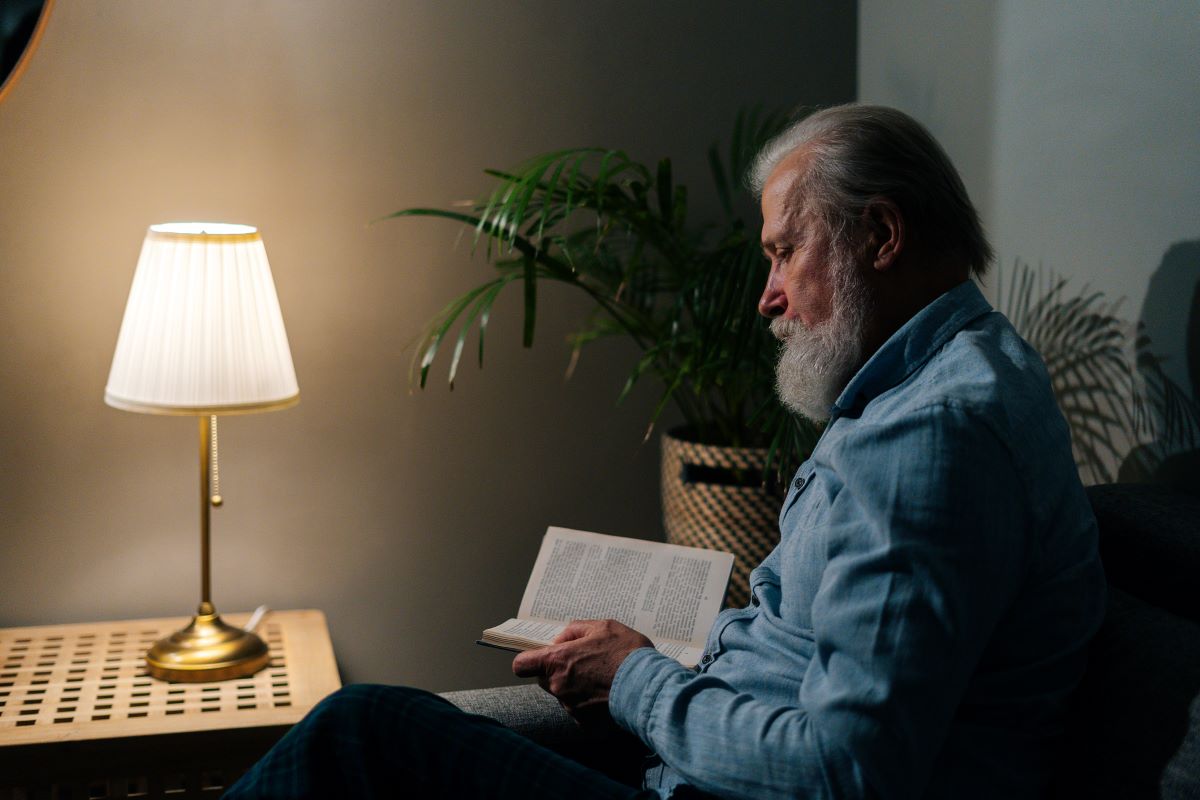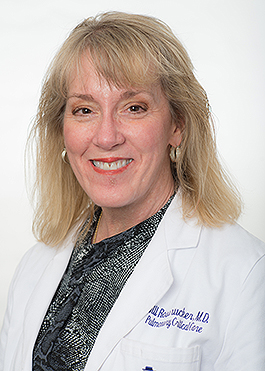
What sleep problems are commonly associated with treatment for cancer?
Sleep difficulties are common in patients with cancer, with 30%-75% reporting trouble sleeping. Frequently reported sleep disturbances from patients with cancer include, trouble falling asleep; frequent wake-ups and difficulty falling back to sleep; snoring and gasping noises during sleep; early morning awakening; difficulty concentrating; frequent and long naps during the day; as well as lack of sleep or excessive sleep.
How do cancer and the associated treatments impact sleep?
Many factors contribute to sleep issues, including treatment and medication side effects, hospital stays, pain, fatigue and mental health issues.
Side effects from treatments such as radiation therapy, chemotherapy, hormonal therapy and surgery impact sleep. Medication to treat pain and nausea can cause sedation. Additionally, anemia from chemotherapy can also contribute to tiredness and fatigue.
Hospital stays can create sleep difficulties because of the environment and hospital routines of checking vital signs, giving medications and various other interruptions.
Tips for better sleep in the hospital include:
- Bringing comforting items from home
- Keeping blinds open during the day to maintain a normal sleep schedule
- Asking for medication or treatment to be administered during the day and being out of the bed as much as possible
- Requesting to not be awakened for vitals after sleep onset
Pain from a variety of sources including the cancer itself, associated treatments and surgeries, as well as procedures and testing can significantly impact sleep. This pain can prevent sleep onset and sleep maintenance.
Finally, fatigue is almost universal in patients undergoing treatment for cancer. The degree of fatigue varies from patient to patient; however, this should not cause distress but should be anticipated. Fatigue can be due to anemia, pain, lack of sleep, nutritional issues, lack of exercise, hormonal changes, medications and emotional issues associated with the diagnosis and treatment of cancer. Tips to improve fatigue include conserving energy, staying active (if physically able) and practicing relaxation techniques.
Mental health is also affected in many patients and can lead to depression, anxiety and distressing concerns about the diagnosis and treatment of cancer, which can also lead to issues with sleep.
How and when should I bring up my sleep issues with my health care team?
All patients should mention any sleep or mental health concerns to the health care team as soon as they are noticed. These issues can be managed in the short term by medications to assist with anxiety, depression and sleep as well as general tips to improve sleep and mental health concerns.
How are sleep problems assessed?
Sleep issues are assessed by discussion with a provider who will take a sleep hygiene history, which includes things like:
- When the sleep issue began
- An estimated bedtime and how long it takes (on average) to fall asleep
- Identification of frequent awakening and the amount of time it takes to fall back asleep as well as identification of the cause(s) of frequent awakenings:
- Is pain being well managed?
- Is the sleep environment conducive to good sleep?
- Is there excessive napping during the day?
- Helpful questions to ask a provider during the sleep hygiene history include:
- Why am I having trouble sleeping?
- What steps can I take to improve my sleep?
- Should I seek the help of a therapist?
- Are any medications appropriate for my concerns?
What are some techniques used to manage sleep problems?
Below are some helpful techniques that can be used to manage sleep problems:
- Prioritize sleep, make gradual adjustments and minimize napping, if possible.
- Set up a sleep schedule by having a fixed wake-up time and fixed bedtime (when able). Keep a consistent routine, budget time for winding down and minimize light exposure after dark as light is the most powerful wake stimulant.
- Restrict any in-bed activity and unplug from electronics. The bed is for sleep only not for watching television or scrolling on social media.
- Keep the room cool, dark and quiet with no clock; use black-out drapes, an eye mask, earplugs, a sound machine or anything else that will make the room void of anything that may arouse you. Sometimes sleeping apart from a bed partner may be necessary to avoid additional arousals from a partner’s snoring, frequent movements or frequent bathroom needs.
- Do not remain in bed while not sleeping. If unable to return to sleep, read something boring on black and white paper in an uncomfortable chair in a different room to help block the brain from intruding thoughts that promote feeling awake. When feeling sleepy return to bed and think a neutral thought like waves or clouds while not allowing other thoughts to enter. This takes practice, but it works!
- Take medications prescribed to promote sleep, control anxiety and/or control pain.
- Stay active during the day.
- Reduce caffeine and alcohol consumption as well as eating and drinking before bed.
In summary, be aware of the importance of sleep and how cancer can be anticipated to affect sleep (hopefully for only a short time). Optimize sleep practices and talk to the health care team for guidance to assist with obtaining a restful slumber.
For more sleep tips from Northside Hospital sleep experts.
Reference:
- Ancoli-Israel, S. "Sleep Disturbances in Cancer: A Review." Sleep Medicine Research 6, no. 2 (2015): 45-49. https://doi.org/10.17241/smr.2015.6.2.45.

